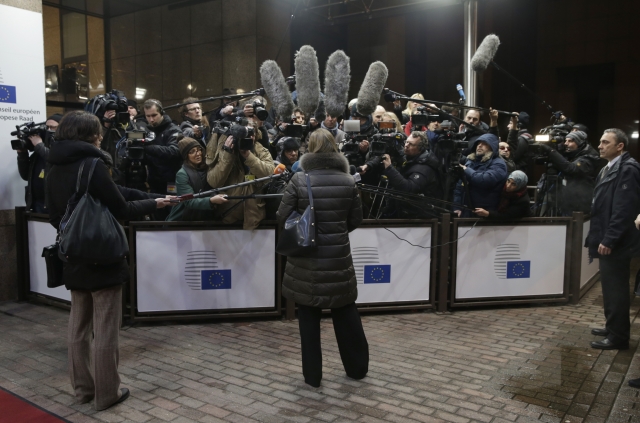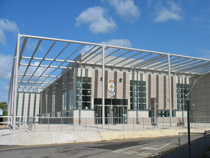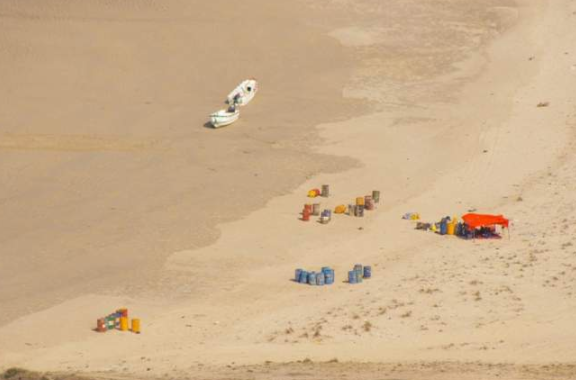Will the Europeans have to raise their voices?
(B2) For the Europeans, the American withdrawal from the agreement with Iran, a true betrayal of the word given, is also a formidable opportunity. Do not hesitate to say it! They find themselves on the front lines tasked with keeping an important Middle East security agreement alive. Because this text is not a simple agreement signed between several States, it is a Security Council resolution with which Europeans find themselves responsible.

A matter of security
We must first ensure that Iran will respect all its obligations (as it has done so far). Which is no small feat. We must also ensure that China and Russia remain in the agreement. Finally, we must ensure that European companies are not targeted by American sanctions measures and do not gradually withdraw. This would empty this agreement of all substance and would lead to its unperturbed disintegration. The measures taken by the Europeans, known as 'blocking status', do not seem likely to thwart this movement.
A vital showdown
In short, we are on a vital strategic question on which European diplomacy plays its existence. We must not be afraid of words. Either she wins what is a real showdown, and she will have earned her letters of nobility. Or she loses it. And it will no longer serve any purpose to talk about the weight of Europe in the world, except as the subject of a symposium or seminar. Europe would then remain condemned to be the good old uncle who has a vast checkbook — from humanitarian aid to macro-financial aid — to which we turn when we need access to the market or financial assistance to reconstruct a collateral damage, and which cheerfully gives its windfall in exchange for good advice.
A harsh international context
However, while the world stiffens, Europe's allies-neighbours (from the United States to Russia via Turkey or Israel) have each, in turn, hardened the tone of their foreign policy like the importance of their criticisms vis-à-vis the European continent, will the Europeans be able to continue to play the 'nice' zozos of international politics? The question deserves to be asked after what looks like a real betrayal of the word given by the Americans.
The American betrayal
The United States has, in fact, gone in a few months from an unfailing ally, friend and partner, to that of the position of a 'difficult' ally. While official language still refers to the United States as a 'friend and partner', the geopolitical reality today is slightly different. The USA is clearly an adversary. The President of the European Council Donald Tusk, who cannot be suspected of being suspicious of the Euro-Atlantic axis (1) said it clearly in Sofia: “ with such friends it is useless to have enemies ».
“Looking at the latest decisions of Donald Trump someone could even think: with friends like that who needs enemies? »
The ambassadors of the Political and Security Committee were able to witness this during their recent visit to Washington. As they were received by some officials from the Pentagon, the Secretary of State and the National Security Council, they felt the breath of a cold breeze rather than that of a warm friendship. " Our American interlocutors do not seem really fascinated by the European Union says one of the participants. Fact, " it is rather the indifference that reigns in Washington on the European Union ". In less diplomatic terms, American allies care like their first shirt about their European allies.
The need to speak loud and clear
Europeans who are used to thinking slowly and speaking intelligently will now have to learn to react faster, with intelligible language. Not hesitating to speak loud and clear is not always a fault...
(Nicolas Gros-Verheyde)
Long version of the column broadcast on France Tv News by the whole gang Blame it on Europe
(1) On the contrary. For this former Polish Prime Minister, friendship and attachment to the United States is one of his credos in political matters (read: “The American presence in Europe guarantees our security” D. Tusk). As soon as he arrived at his post in 2009, his first gesture was to call the Americans (read: A clever Pole at the controls). His words therefore reflect European developments.


